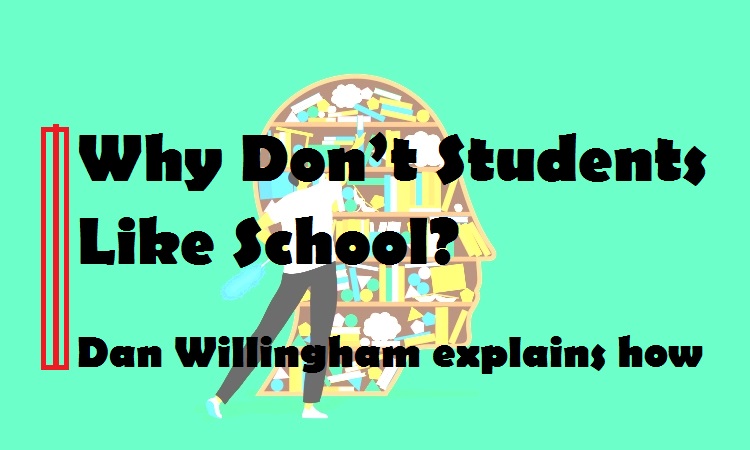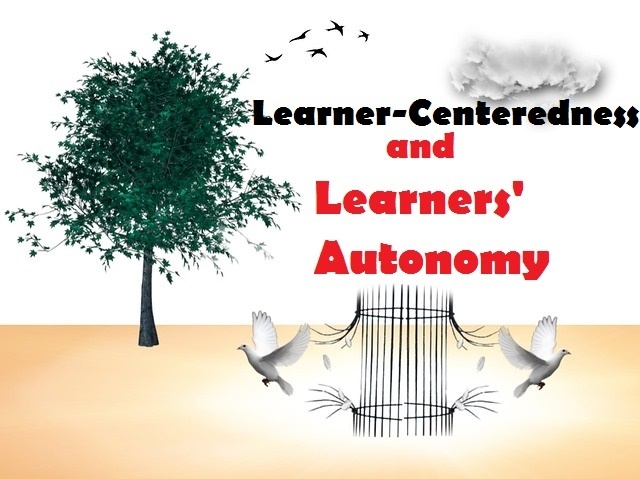Why Don’t Students Like School?
Children are naturally inquisitive and curious. Yet, when it comes to school and learning, it seems that this curiosity stops, and their minds no longer work. Not all kids of course, but I assume many of them don’t like school.
A worth-asking question is: why is it that most of them can remember the smallest details from their favorite TV programs, yet can’t answer the most obvious questions on their history or literature test?
Dan Willingham, who is a well-known cognitive scientist, has concentrated in his research on the biological and cognitive basis of learning and has a microscopic understanding of the daily obstacles faced by teachers and educators.
His well-acknowledged book: Why Don’t Students Like School?: A Cognitive Scientist Answers Questions About How the Mind Works and What It Means for the Classroom. has shaped educational practices and helped many teachers and educators change their perceptions of learning and understand how learners think and learn. It reveals the importance of story, emotion, and memory in constructing knowledge and creating genuine learning experiences.
In this breakthrough book, the author has summarized his knowledge of cognitive science into nine basic principles that are very simple to grasp and have sound pedagogical implications for the classroom.
The first principle is that people are curious
“People are naturally curious, but we are not naturally good thinkers; unless cognitive conditions are right, we will avoid thinking” (Willingham, 2009, p. 163). Our minds aren’t designed for thinking. Kids don’t like school because they hate thinking.
The second principle is that factual knowledge must precedees skills
“Factual knowledge must precede skill” Willingham, 2009, p. 13) Prior knowledge is a necessary prerequisite for cognitive skills. In educational circles, there are many talks about higher-order thinking skills and critical thinking. Yet, before children can reach these skills that are at the top of bloom’s taxonomy, they must build a knowledge base.
The third principle is that “Memory is the residue of thought”
“Memory is the residue of thought” (Willingham, 2009, p. 63). Kids remember only what they actually think about. To succeed at teaching, teachers must pay attention to what kind of homework will make students think.
The fourth principle is that kids learn things in context
All kids understand new things in the context of things they already know” (Willingham, 2009, p. 67). Understanding and memory are linked and the capacity to think abstractly is built upon a basis of concrete thoughts.
The fifth principle is that practice makes better
To be proficient, you need practice. “It is virtually impossible to become proficient at a mental task without extended practice” (Willigham, 2009, p. 91). Proficiency necessitates practice and transfer. Practice enhances performance, but it should be the right practice in terms of time and place.
The sixth principle is that cognitive thinking changes over time
Cognition is basically different and late in training (Willingham, 2009, p. 173). As we grow, our thinking skills change. An adult does not think like s/he did when s/he was a child. A scientist or an expert does not think like a typical pedestrian.
The seventh principle is that people are the same with regard to thinking
People are the same as regards thinking and learning. We were told that we think and learn differently and that there are learning styles and each individual has a learning style. We actually learn in pretty much the same way. Willingham is not saying that teachers should treat all students the same way. He says, “as far as scientists have been able to determine, there are not categorically different types of learners” (Willingham, 2009, p.114).
The eighth principle is that intelligence is not static
Intelligence can be changed through hard work. Traditional measures of intelligence concentrate on information stored in the long-term memory. These memories are the outcome of environments. While our genes are responsible for about 50% of our intelligence, the environment may play a bigger part in intelligence than was realized (Willingham, 2009, p.146). Teachers can help enhance and develop intelligence by rewarding effort and risk-taking.
The ninth principle is that teaching is that skill that needs to be harnessed over time
Teaching is a skill, of a cognitive nature, that must be practiced and improved. Teachers must continually develop themselves as teachers. There is a difference between experience and practice. “Experience means you are simply engaged in the activity. Practice means you are trying to improve your performance (Willingham, 2009, p.159).
Why Don’t Students Like School is a wonderful reference for every teacher who wants to know how their minds and their students’ minds work and how that knowledge can help them enhance their teaching skills?
Note that everything you read here is clearly the perspective of Dan Willingham.
Please Catch us on Facebook and Share this post with others.







